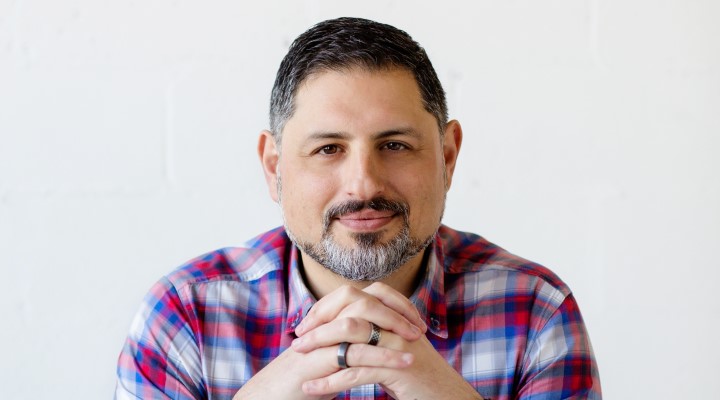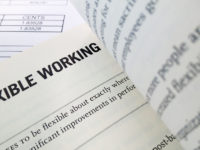The social, technical and analytical skills central to leveraging your effort.
Renovations – equally exciting as they are painful. Over the last year we have had old, dilapidated fences replaced, the entire house painted, a new kitchen installed and some landscaping done. As a client, it can be a full-time job organising, deciding on, and managing the process.
But it has also given me another opportunity to observe how people go about their work – how they inspect, propose, organise and execute the job at hand. It may sound a little weird, but it’s what I do – I’m a professional performance voyeur. Since my days as a retail manager – when everything you do is on display – this habit of observing won’t die easily.
It has been fascinating to interact with so many tradies, suppliers and contractors. Some knowledgeable and sharp that filled us with confidence, others riddled with broken promises, missed deadlines, and shoddy workmanship.
As a customer, these bumpy moments cost time, energy and money. But they cost the businesses themselves even more. The pain and stress they put themselves under was unmissable. One of them was on the brink of tears after apologising numerous times about a job not being done well, and it was easy to empathise with him. He was cooked, or, using the ‘formal’ term, burnt out.
Burnout rates are at record highs (81 per cent of the workforce, according to HR Leader in October 2023), so self-care has never been more important. To alleviate burnout, I find it helpful to dissect and investigate how we exert effort.
For me, it is a game of Return on Effort (RoE).
Effort is made up of our most precious resources:
- Attention: Everything and everyone are seemingly trying to grab our attention at every moment. Smartphones have become the new nicotine as they hunt down every waking moment. Attending to constant distractions is all-consuming and exhausting – just ask parents of young children.
- Energy: In a 24/7 society where sleep is harder to come by and working hours seem to be ever longer, the strain on our mental and physical energy is real. When the batteries are low, everything seems harder.
- Time: No one has enough. With email, mobile communication, and so-called ‘social connectivity’, we have found ourselves with less and less time.
Lost money can be earnt back. Lost customers or staff can be replaced. Lost opportunities can be learnt from. But, lost effort is not only gone forever, it also leaves us in deficit.
Our effort crisis is real. How can we achieve business performance while not over-exerting ourselves?
“Burnout rates are at record highs, so self-care has never been more important.”
In researching my book The Rhythm Effect, I found there are many approaches to personal and team performance. Some theories are useful but many I found impractical. So, I reflected on my own experience.
As a fast bowler playing professional cricket in the late 1990s and early 2000s, the concept of ‘being in rhythm’ was talked about a lot but no one knew exactly what it was. I delved into the world of peak performance to answer the question, “How can we find our rhythm in our professional lives?”. I studied Mihaly Csikszentmihalyi’s Flow and Steve Kotler’s extension of this work. I learnt about the military’s idea of battle rhythm and Six Sigma’s framework of an operating rhythm. I threw in my own observations from owning various small businesses, and having small-business clients, and from my sporting and corporate experience and interviews of clever people.
The idea of exerting less effort for better results – as my golf coach puts it, “You can have powerless effort or effortless power” – became the core of what I learnt. The question was, what were the building blocks of rhythm?
It turns out there are three pillars to create this enduring performance state.
Social proficiencies
It seems that when we attack our work with a service mindset (humility), we are more productive and get a better result. My burnt out tradie was worried about his schedule, his margins, his reputation, and how the job was affecting him. It is easy to see why he was thinking like this, but it isn’t productive. With so much ‘me’ in one’s thinking, it can feel like everything in the world hinges on how we are faring. Instead, serving others lightens the mood and frees us up to be constructive. It can feel counter-intuitive, but it’s liberating.
A surprise in my findings was that being a little bit naughty (audacity) is also important. This is not about breaking the law or compliance, but is focused on going outside our comfort zone and asking questions, being curious, and trying new things. Children learn by playing, but as adults, we forget this. Better solutions and collaboration happen when we take a moment and play outside the lines.
Lastly, the one most reliable predictor of future success is simply not to give up (tenacity). Putting in the effort to just hang in there creates huge returns. Never underestimate the value of grit. Our tradie friend could have used a dose of this to remain proactive in the face of disappointment and challenge. It shifts our focus from what has been to what is next – a powerful reframe.
Technical proficiencies
We are paid to do a job or build a product because we know how to – these are our Unique Technical Skills (unique to our industry, job title, company or location). By investing in such core job skills, we increase RoE. Be sure to schedule industry-specific professional development into your calendar.
Then there are the Universal Technical Skills (universal to all of us across industry and disciplines). For example, frameworks for planning, communicating and executing are essential for all professions. Applying these tools maximises RoE. Managing timelines, running performance reviews, having coaching conversations, hosting effective meetings, managing conflict, facilitating problem-solving and being assertive are just some of these critical (and underused) skills. Anyone can learn them and make them their own.
Analytical proficiencies
There is no need to be a business analyst poring over spreadsheets and dashboards, but a practical and keen observers’ eye is required to build and roll out effective strategies for projects of any size.
I love a practical no-frills approach to this – a pen, paper and a little nous is all that’s required. Having a strategic process gives us control and purpose we can use to drive people and projects.
Understanding and aligning the ‘why’, ‘what’ and the ‘how’ of initiatives in business creates a consistent decision-making backbone we can lean on in a turbulent world.
My favourite café in Sydney, The Grounds, the Richmond Football Club in the AFL during their recent premiership years, and our fencer – a young man called Matt – are all examples of businesses using these proficiencies. It is not easy, but it is worth it.
The game of ROE is one we are all playing, whether we know it or not. Investing in one or two proficiencies at a time can create a positive impact on your health, wellbeing and business results. It will, we hope, make renovations a little less painful, too.
This article first appeared in issue 44 of the Inside Small Business quarterly magazine











